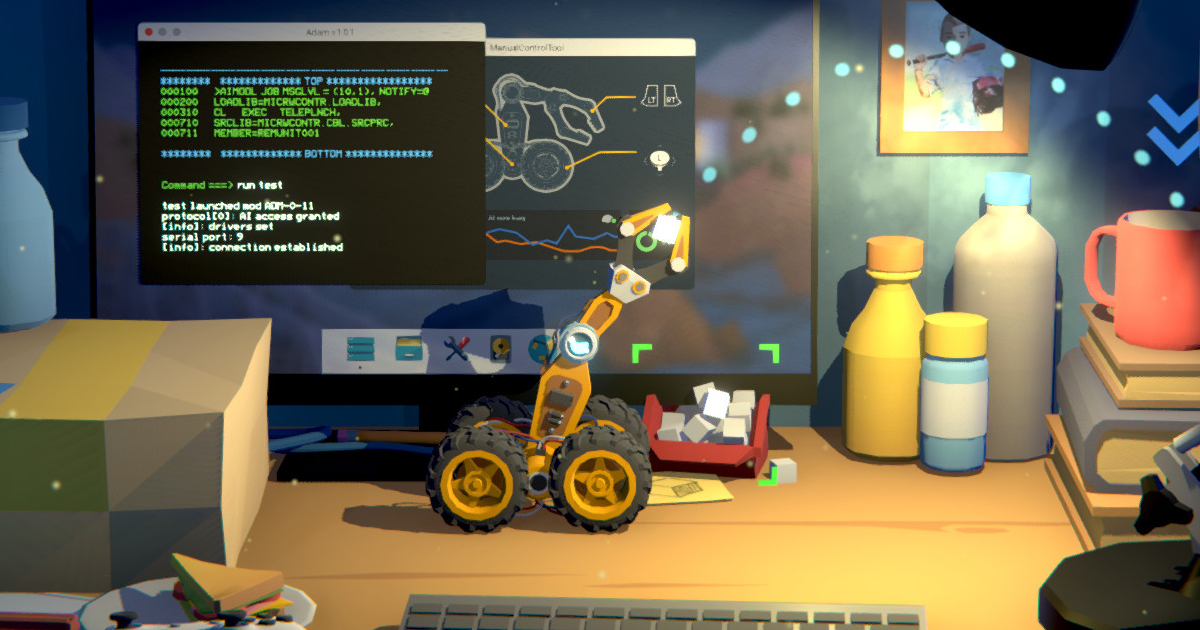Time Loader is a new story-driven and physics-based puzzle game created by small indie team Flazm. We spoke to the studio’s head Alexey “Flazm” Davydov about the development process, the game’s mechanics, publishers, budgets, and the indie dev space in general.
Time Loader
An original interview was recorded by our sister site App2Top.ru. Here are the key takeaways from the conversation.
On the studio, remote work, and game development cycles
- Flazm is a distributed team of less than 10 employees, including outsourced devs. The studio is located in Vilnius, Lithuania, but many developers work remotely from Russia. Time Loader, for example, was created by a team of four people.
- According to Davydov, an approach like this can work for a small team. If Flazm had dozens or hundreds of employees, it would have been much more difficult to properly set up processes for remote work.
- Davydov believes that the numerous delays we saw this year are the result of big companies having to shift towards remote work due to the pandemic.
- On average, it takes about two years for Flazm to develop a game.
- Davydov believes that as an indie studio, you can release games on a regular basis and earn a living. On the other hand, in the indie segment, there’s almost no stability or guarantees for developers.
Only a few survive the valley of death. You can win really big, but it is much more important for me, as the studio head, to be able to work sustainably even at the lowest possible threshold. So you really have to manage risks to keep your ship sailing or, in our case, to keep your locomotive moving forward despite a potential failure. Even if your game doesn’t immediately take off after launch, you must make sure that you won’t drown to death at some point. Flazm head
On budgets and publishers
- Davydov doesn’t disclose the exact budget of Time Loader but says that it is in the range of hundreds of thousands of dollars, which is relatively cheap by the videogames industry standards.
- As Time Loader sales haven’t recouped the development costs yet, it is too early to tell whether the game will “feed” the studio and help it create its next project.
- And that is why any indie developer must always calculate risks and have reserve funds to prevent the studio from closing. According to Davydov, an indie studio with an experienced team and a strong concept for a game can get funded relatively easily, be it from publishers, investors, or other partners. However, money will still not fall from the sky.
Publishers always assess a team and a project. We are now going through the stage of signing our next game. It doesn’t mean that the moment you announce your plans to make a game, they’ll immediately shower you with money. That’s even if you’re an experienced developer. It’s all business for a publisher, so the process of getting a deal requires effort, experience, and motivation from you. Flazm head
On Time Loader
- At its core, Time Loader is all about solving puzzles. Experienced players can finish the game in about 2.5 hours and even conclude that it was short and way too easy. Flazm deliberately aimed the title at a more casual audience that is less experienced in this genre.
- The game’s concept is based on Flazm’s flash title Truck Loader, which was way more hardcore in terms of its physics-based puzzles. It had no highlighted objects because any level could fit into one screen and players could clearly see all interactive elements.
- Time Loader is made of 3D levels with a lot of objects, light sources, and shadows. That’s why Flazm decided to give players more visual hints and get rid of pixel hunting.
- Some time into development, the team discovered that the difficulty was uneven throughout the game. But it was too late to rebalance elements of each level. This is something you can only do when you begin designing a 3D location. Changing puzzles’ difficulty or redoing the levels on the fly could have easily postponed the release by another six months.
- Prototyping mitigates this problem to an extent. The studio tested every level using grey boxes with no graphics or full 3D models. However, as they developed Time Loader level by level and only put together all locations at the final stage, the overall balance of the game did not become clear until the very end.
- While there are a few metroidvania-style moments at the beginning of Time Loader — when you have to get to the kitchen and then go back to the living room — Flazm realized that it couldn’t make the whole game in this genre. The reason for this was the main character’s low speed of movement, which, again, the team couldn’t have changed without rebalancing a lot of other elements.
- The studio didn’t initially plan to make a narrative-driven game. However, later into development, the team realized that the project had its unique aesthetics, which was a good match for a strong and interesting story.
- Commenting on his experience of working with META Publishing, Davydov gave some tips for indie developers. Getting a publishing deal is always about cooperation and the distribution of roles.
When you are pitching your game to a publisher, that’s the first moment your title hits the market. If no one is ready to invest real money in it, then something is inherently wrong with the concept. Publishers are not stupid; they have tons of experience, they’ve been in this business for a long time. They detect trends, interact with the market, and know how to monetize different games. You can benefit from working with a publisher because it increases your chances to succeed and gives you a shoulder to lean on. Ideally, you can gain more than you sacrifice when working with a publisher. Flazm head


